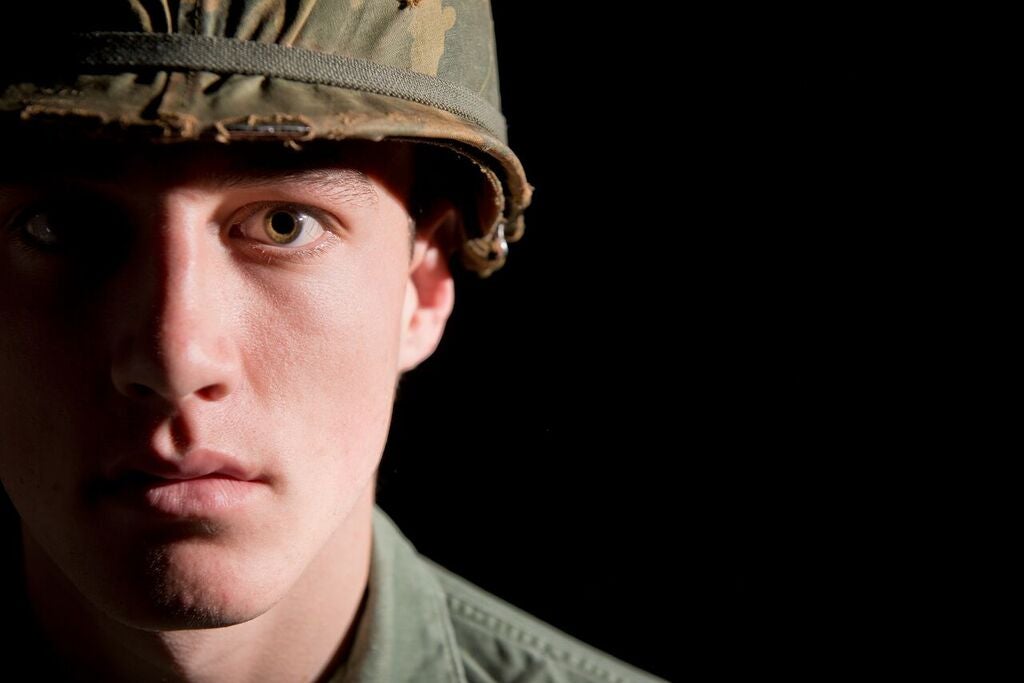
(Photo Credit: istockphoto)
TOM VOSS is national veteran liaison for Project Welcome Home Troops, a program of the International Association for Human Values. He spoke at Spotlight Health on June 25th on a panel called “Focus on Breath: Healing the Trauma of Veterans.” We caught up with Voss to learn about moral injury — what it is, and how it impacts veterans.
My name is Tom Voss and I am a combat Veteran. I deployed to Mosul, Iraq from 2004 to 2005 during the some of the heaviest periods of conflict. As an infantryman specializing in reconnaissance, my fellow grunts and I witnessed and engaged in ground combat with the enemy. During my deployment my platoon sergeant and one of our squad leaders were killed in action (KIA). These events, along with the constant attacks that happened while I was deployed, have had a deep and lasting impact on my life.
Soon after I returned home from my deployment in 2005, I was able to separate from the Army after fulfilling my contractual obligations in 2006. Many of my friends with whom I was deployed were not so fortunate. I returned to Milwaukee, Wisconsin, a 21-year-old combat veteran with no idea what I wanted to do after my incredibly horrific experience.
I decided — naively — to jump back into life headfirst. I enrolled in college full time, got a full-time job, got my own apartment, and did my best to repress and ignore the memories of Iraq. I was doing my best to move on with my life.
I made it through about a year before everything started to come crashing down. I started drinking to go to sleep — the nightmares kept me from sleeping if I went to bed sober. I isolated myself from the world. I had no one to share my experience with. After all, most of my friends with whom I was deployed were getting ready for their second tour in Iraq and I was left with a growing sense of guilt that I wasn’t fighting with them.
I dropped out of school because I stopped caring. What was the point? Nothing really mattered to me and I began to live my life as if I was already dead. Thoughts about the deaths of my friends haunted my every waking moment:
I was given the day off that day the day my platoon sergeant was KIA. He died because I was given the day off. If I was out there that day he would still be alive. I should be dead. I should be dead and he should be with his wife and kids. I don’t have a family like that. I should be dead.
I was diagnosed with post traumatic stress disorder (PTSD) in 2008 and was immediately prescribed a battery of medications for depression, anxiety, and sleep disorders by the Veterans Health Administration (VA). These medications were mere Band-Aids on a surgical wound; they could not relieve, let alone cure, my pain and suffering. I wanted to kill myself because I could not live with myself nor relive the carnage of war anymore. The diagnosis of PTSD I received from the VA did not explain what I was feeling, thinking, or experiencing.
I believe that while PTSD certainly played a role in my post-war experience, it was moral injury that underlined my inability to move beyond my wartime experience. It was moral injury that brought me to the brink of suicide.
Moral injury, which is the survivor’s guilt — the sadness from all the death I witnessed, and the sorrow for my lost comrades — was crippling. Medication could not touch these deeply emotional wounds, but treatment of moral injury can.
Fortunately, my will to live was strong and I decided to deal with my issues head on. I decided to walk across the country with another Iraq War veteran, Anthony Anderson, to help heal from the unseen wounds of war. This journey was documented in the recently released feature-length documentary, “ALMOST SUNRISE.” Through this trek, we were introduced to breath-based meditation techniques taught by the not-for-profit organization, PROJECT WELCOME HOME TROOPS. The breath workshop and exposure to the beauty of nature I experienced walking across the country had a tremendous impact on the pain and suffering I was going through.
Moral injury has been talked about for years, but has taken a backseat to PTSD as the primary topic of discussion for the men and women returning from combat. However, I believe that moral injury — a wound to the soul, to the Self — should be explicitly addressed when reintegrating and treating our heroes returning from war.
Moral injury is not yet recognized by mainstream medical entities like the Veterans Admiration and the American Psychiatric Association. Maybe it’s time we changed that.

